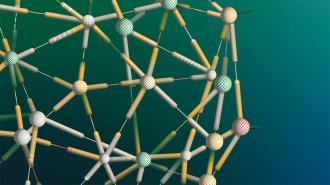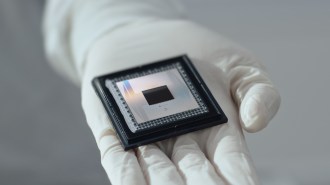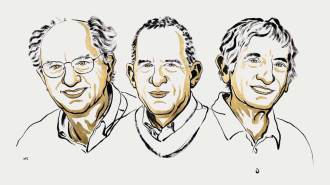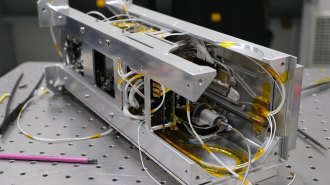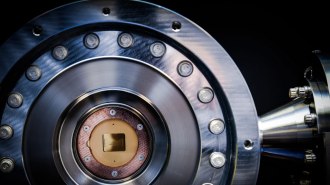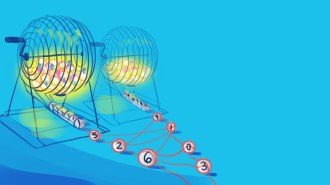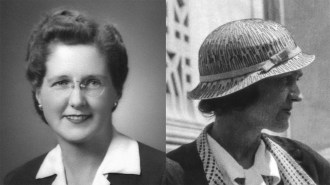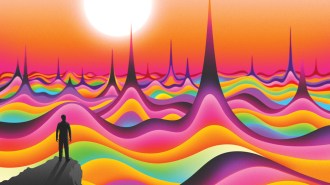Drones could help create a quantum internet
Scientists have used octocopters to send entangled photons to distant locations
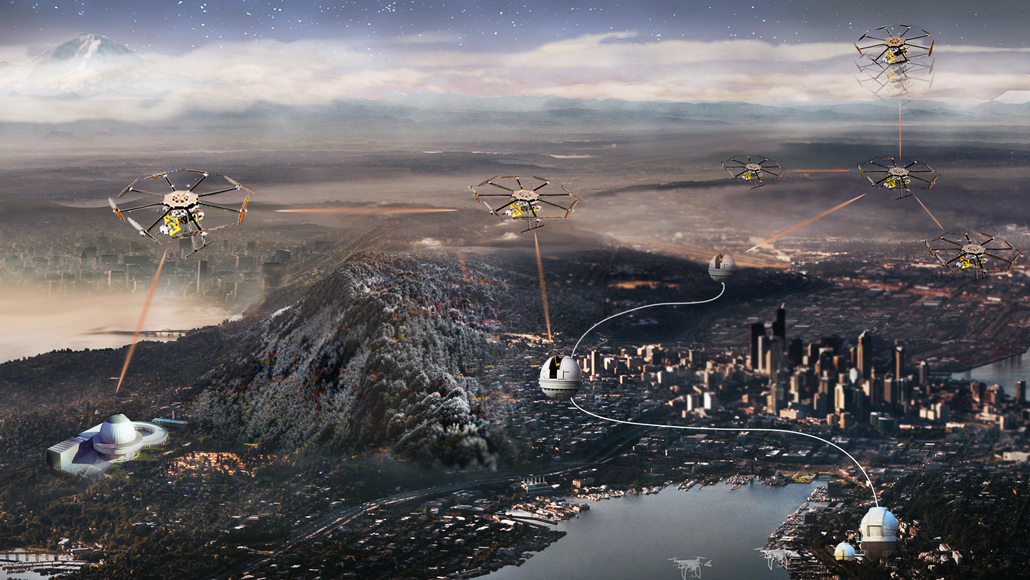
A fleet of drones could create a quantum network by transmitting quantum particles among the fleet’s formation and relaying the particles to ground stations at various locations within a city (illustrated).
Xiao-Hui Tian, Hua-Ying Liu and Zhenda Xie
